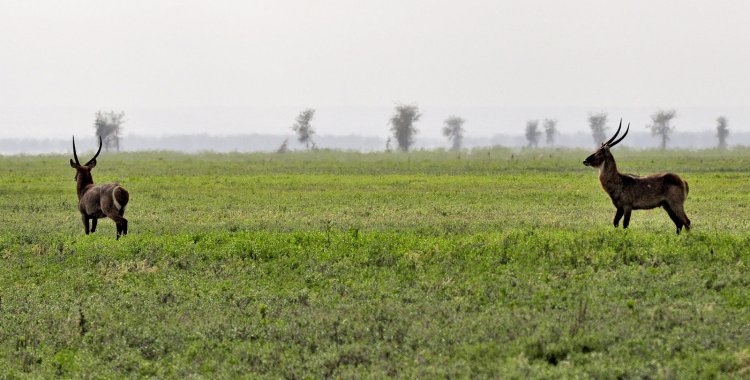The situation was reported by the Secretary of State for the Environment, Abias Huongo, lamenting the disappearance of many animal species as a result of the degradation of Angola's biodiversity.
According to the official, the decline of the Angolan ecosystem is visible, especially in the national parks and nature reserves, which currently have around 250 specimens of the giant sable, against the previous 2500.
"We have lost a large part of our natural heritage, of the 3000 elephants we had in the Quiçama National Park today we have very few", said the minister at the opening of a civil society debate on the environmental emergency.
"We are losing large ecosystems that are the basis of survival for many species, especially with urban expansion, which affects areas or natural reserves", he pointed out.
The debate, promoted in Luanda by the Ministry of the Environment, is an antechamber of the IX Meeting of Ministers of the Environment of the Community of Portuguese Speaking Countries (CPLP), which Luanda hosts this month.
Abias Huongo noted that Angola is experiencing the impacts of climate change, pointing to the consequences of greenhouse gas emissions with "remarkable losses of human lives, homes and other infrastructure".
"We need to work to change this situation", he defended, considering that desertification in Angola, a result of agriculture, is also a challenge that must be faced.
In desertification, he maintained, one of the "biggest threats" is the "degradation of the ecosystem, such as the soil, with the practice of agriculture", which is also the basis of development, hence the need to "work towards sustainable agriculture to stop the devastation".
He pointed to the pollution of soils, rivers and seas as "one of the evils" that compromise environmental sustainability in the country, having also defended a "firm commitment" to environmental education, starting with families.
The role of civil society in achieving the goals of the Sustainable Development Goals, water and sanitation and its contribution to the environmental emergency and the challenges of the global agenda for biodiversity and the climate emergency are some of the topics under analysis.
The meeting, which brings together various actors from civil society linked to the protection and promotion of the environment, aims to gather contributions that reflect society's concerns and possible solutions in this field to support the discussion at the IX Meeting of CPLP Ministers of the Environment.
Angola, Brazil, Cape Verde, Guinea-Bissau, Equatorial Guinea, Mozambique, Portugal, São Tomé and Príncipe and Timor-Leste are the nine Member States of the CPLP.







